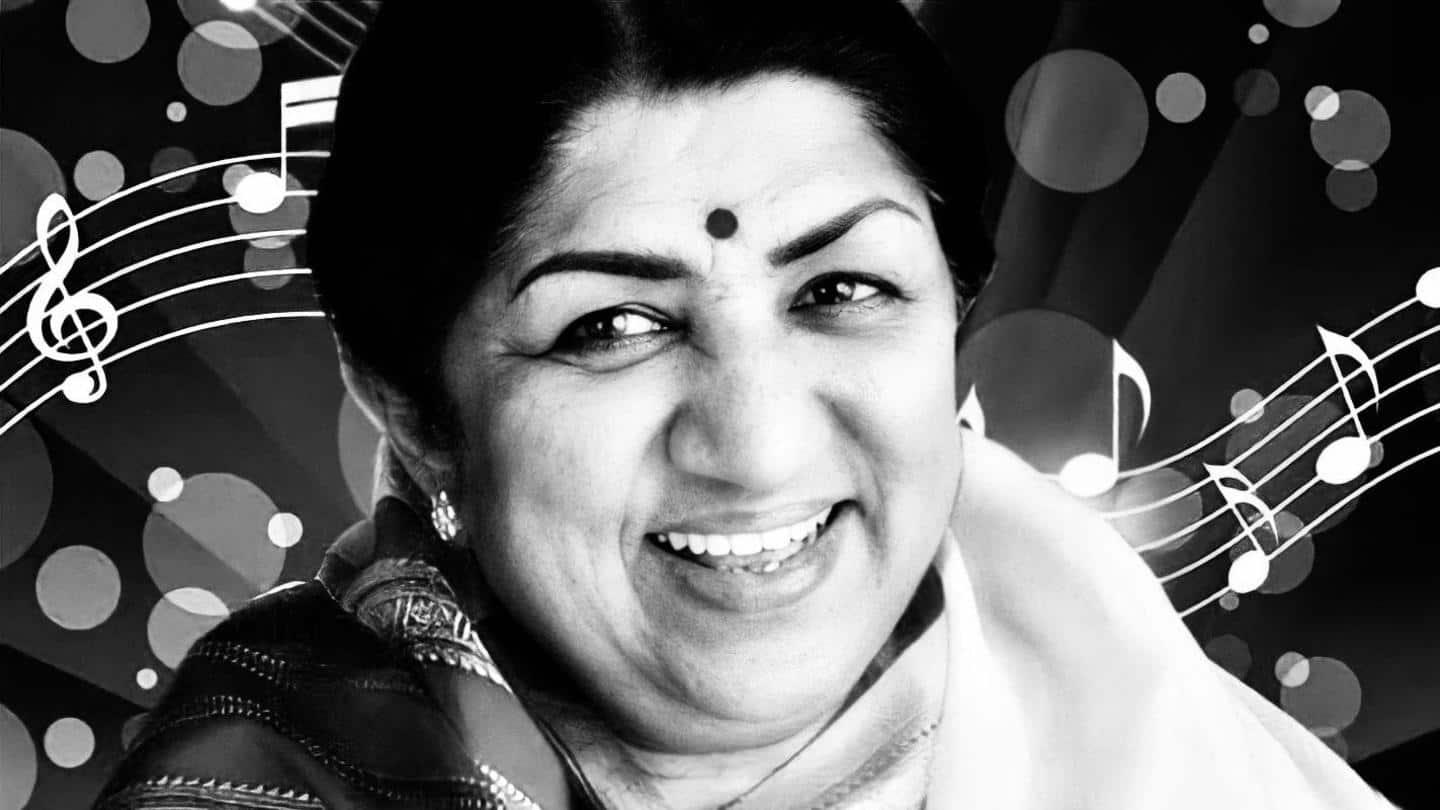
Remembering Lata Mangeshkar and her fighting spirit
What's the story
The Queen of Melody, Lata Mangeshkar, left us for the heavenly abode on Sunday, leaving behind a chasm that is not likely to be filled any time soon. The music legend was Didi to some, Aaji to many, and an icon to all. Today, we remember the nightingale through the gritty determination, indomitable fire, and fighting spirit that she embodied in her life journey.
Early life
Mangeshkar lost her father early, began working as teenager
Born in 1929 in Indore as Hema (she was renamed Lata later), Mangeshkar was the eldest of five siblings. Her father was Pandit Deenanath Mangeshkar, a classical musician-cum-theater artist, and was Mangeshkar's first teacher. But she lost her father at the tender age of 13 and had to begin working to support her family. She, however, found guidance in their family friend Master Vinayak.
Career
She found footing after numerous obstructions, complaints against her
Mangeshkar, who started acting and singing in movies, struggled with finding a footing. Her first song was Naachu Yaa Gade, Khelu Saari Mani Haus Bhaari for a 1942 Marathi film but it ended up getting cut out. She acted in some films but "hated it," therefore concentrated solely on singing. In 1948, producer Sashadhar Mukherjee infamously rejected Mangeshkar, saying her voice was "too thin."
Pinnacle
The 1950s came and there was no stopping Mangeshkar
Then, success came knocking with her 1948 song, Dil Toda Mujhe Kahin Ka Na Chhoda, and Mangeshkar never looked back. She soon became the favorite of composers like SD Burman, Salil Chowdhury, Shankar Jaikishan, Kalyanji-Anandji, and Madan Mohan. Several generations of composers came in—like Laxmikant-Pyarelal and RD Burman, followed by AR Rahman and Anu Malik. Mangeshkar continued to lend voice for their compositions, too.
Do you know?
When Mangeshkar demanded credit for playback singers
In the 1940s and '50s, playback singers were not credited in films or on record labels. Instead, the records mentioned the names of characters that lip-synced. Mangeshkar had demanded Raj Kapoor, her Barsaat (1949) director/producer, for due credits who "readily agreed," beginning a new trend.
Personal
Did you know she entered politics in 1999?
Mangeshkar was always strict about keeping her personal life personal. Shattering norms that marriage and kids defined a woman's happiness, the Lag Jaa Gale singer believed a person should "first find happiness and a sense of fulfillment within yourself." She also had a brief stint in politics when she served as Rajya Sabha MP (1999-2005), which she accepted only because she "couldn't keep refusing."
Interests
Helped raise money for 1983 Cricket World Cup winners
Mangeshkar was an avid cricket fan. Notably, it was her pro-bono concert that helped the BCCI collect enough money to award Rs. 1L each to all 14 members of India's 1983 Cricket World Cup-winning squad. Deeply patriotic, the Ae Mere Watan Ke Logon crooner felt strongly for the soldiers. In 2019, she donated Rs. 1cr to the Indian Army after the dastardly Pulwama attack.